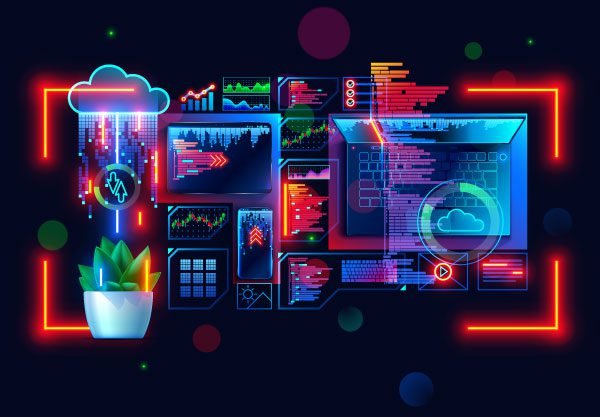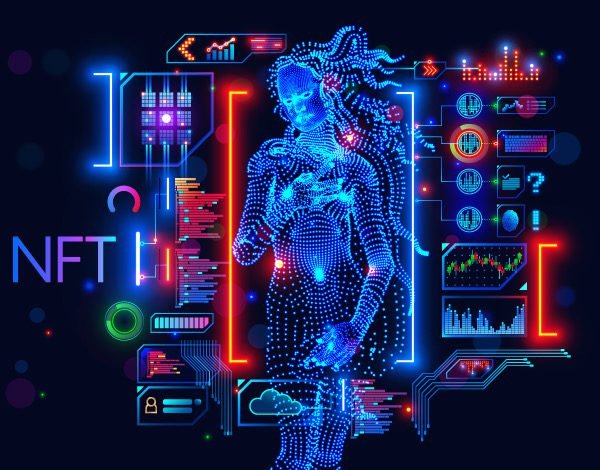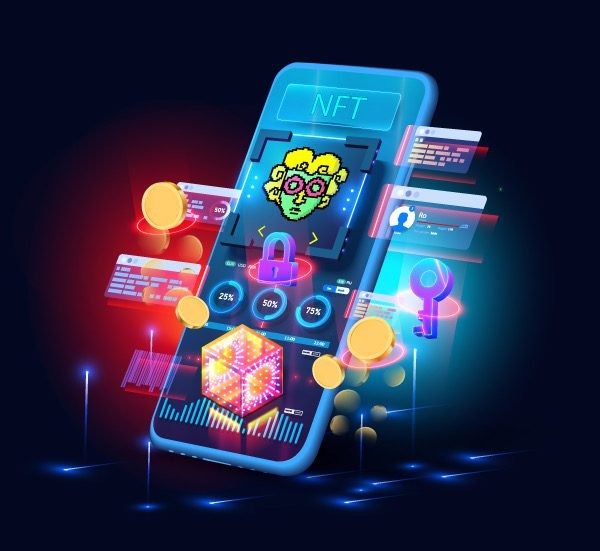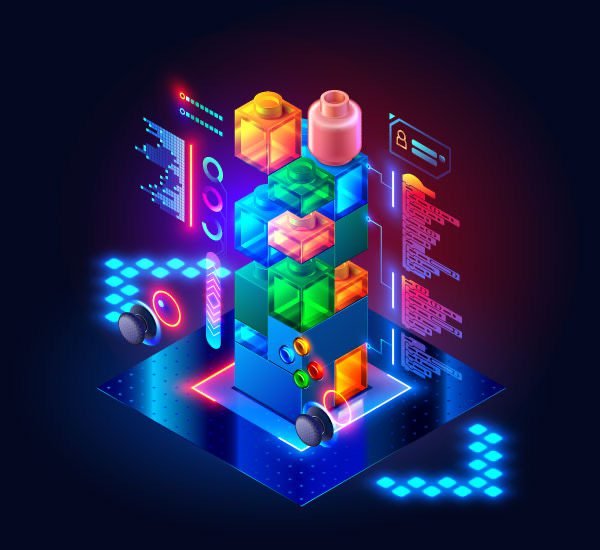NFTs

NFTs, or non-fungible tokens, are a type of digital asset that represent ownership of a unique item or piece of content. These can include digital art, collectibles, virtual real estate, and even tweets. NFTs are created using blockchain technology, which is a decentralized and distributed digital ledger that records all transactions securely and transparently.
One of the key differences between NFTs and other digital assets is that NFTs are unique and cannot be replicated or exchanged for an identical item. This is in contrast to "fungible" assets, like Bitcoin, which are interchangeable and have a set value. NFTs use a special type of smart contract called ERC-721 which allows them to be unique and irreplaceable, making them ideal for representing ownership of unique digital items like artworks, collectibles, and virtual assets.
When an artist or creator creates an NFT, they can mint, or create, a limited number of copies of their work. This is similar to how an artist might create a limited edition print of a painting. Each copy of an NFT is then recorded on the blockchain, which is a decentralized and public digital ledger. This record is given a unique digital signature, called a "smart contract," that verifies its authenticity. The smart contract also includes information about the NFT, such as the name of the artist, the title of the work, and the number of copies that have been minted.

Once an NFT is created, it can be bought, sold, and traded just like any other physical asset. However, because they are recorded on the blockchain, NFTs are also easily transferable and can be bought and sold without the need for a middleman. This means that the transaction can be done directly between the buyer and the seller, without the need for an intermediary such as a gallery or auction house. This allows creators to sell their work directly to collectors and ensures that their creations are one-of-a-kind.

NFTs are becoming increasingly popular in the digital art world, where they allow artists to monetize their work and collectors to own unique and authentic digital art pieces. NFTs also have potential uses in other industries, such as gaming, music, and video. In the gaming industry, for example, NFTs can be used to represent ownership of in-game items, such as unique weapons, armor, or virtual real estate. In the music industry, NFTs can be used to represent ownership of a unique digital music album or even a single track.
However, it's important to note that NFTs are still a relatively new technology and their value and long-term potential is still uncertain. The value of an NFT is determined by the market, just like any other asset, and the market for NFTs is still developing. Additionally, there are concerns about the environmental impact of creating and trading NFTs, as the process requires a significant amount of energy.
Real-life utility of NFTs:
Overall, NFTs are a fascinating and rapidly evolving technology that have the potential to change the way we think about digital ownership and value. They have many use cases, from digital art and collectibles to virtual real estate and gaming items. However, it's important to approach them with a critical eye and do your own research before investing in any specific NFT. As the market for NFTs is still developing, it's important to understand the potential risks as well as the potential rewards of investing in them.

It's also important to note that not all NFTs have the same level of value or potential for growth. Some NFTs may be created by well-known artists or have a limited supply, making them more valuable and sought-after. Other NFTs may not have the same level of value or potential for growth. It's important to do your research and understand the NFT market before investing.

At our company, we follow the latest trends on NFTs to bring innovative investment opportunities to our clients. By closely monitoring various platforms, artists, and businesses, we stay up-to-date with market trends and identify the NFTs with the highest potential for investment. Our goal is to provide access to the best NFT investment opportunities available, ensuring that our clients are well-positioned to take advantage of the rapidly growing NFT market.









